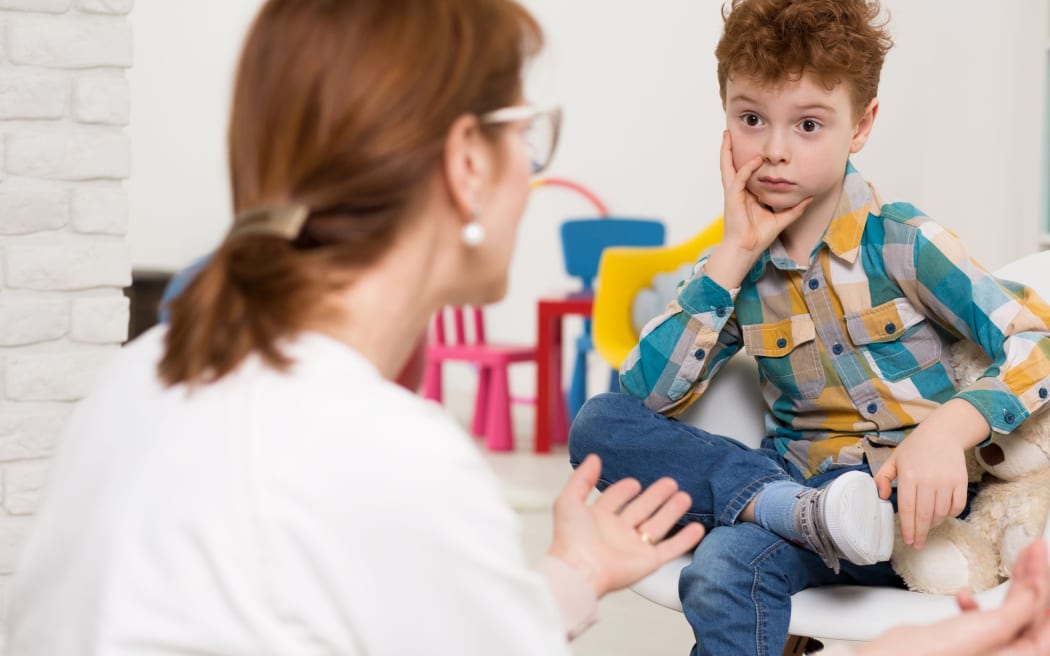Sex, sexuality, relationships and intimacy are all part of life, but many parents and caregivers find it hard to talk to their children about it. The Detail looks at what modern day sex education looks like, both at home and at school.

Photo: 123rf
Talking to children about sex can be challenging.
Should parents leave it to the experts in the classroom at school, or do they need to take the lead and start those conversations at home?
The Detail talks to a health education expert about how sex and relationship education works at school, and a sex therapist about how parents and caregivers can best talk to their children about it.
At school, what's known as "relationships and sexuality education" (RSE) starts in year one.
"In the lower levels of the curriculum, children explore body parts and ideas around safe and unsafe touching. We want to give them the language to use if they are in an unsafe situation," University of Canterbury senior lecturer in health education Dr Rachael Dixon says.
"Consent is a broad term as well, in terms of the right to say no when it comes to anything to do with your body."
Later on in primary school, students learn about puberty and non-platonic relationships.
But research has shown most children and young people are learning about sex outside of the classroom.
"The classification office did some research in 2020 where they found the majority of participants in their study had accessed pornography online by the age of 12," Dixon says.
"What we want to do in health education and RSE is wrap that educational perspective around the criticality, the focus on well-being and attitudes and values that promote healthy relationships, so in some ways, it's a bit of a balance to the messages they're getting from everywhere else."
But there are no must-cover topics in RSE.
"It's up to schools to design a local curriculum in health education that meets the needs of their learners, and also reflects some of the views of the community," Dixon says.
Health education is the only subject in the Education Act which the school community has to be consulted on, and which parents or guardians have the right to withdraw children from.
Nic Beets, a clinical psychologist who specialises in relationship and sex therapy, says he's spent a "good portion" of his professional life "trying to undo the damage and heal the pain", due to adults not having conversations about sex with their kids.
Beets says the "birds and the bees" talk is "a really unhelpful way to frame it up".
"It make it sounds like there should be a single conversation, rather than an ongoing conversation throughout a whole lifetime. The aim should be to having a conversation about the broader issues of relationships, sexuality, bodies, consent – there are aspects of that that you could be talking about with your preschooler.
"Treat sex as just part of life – hopefully you talk to your kids about death and illness as well, these are all part of life and they're not necessarily easy things to talk about – but real intimacy, real sharing at a deep level is often anxiety provoking."
Hear more about this topic by listening to the full podcast episode.
Check out how to listen to and follow The Detail here.
You can also stay up-to-date by liking us on Facebook or following us on Twitter.

Photo:


